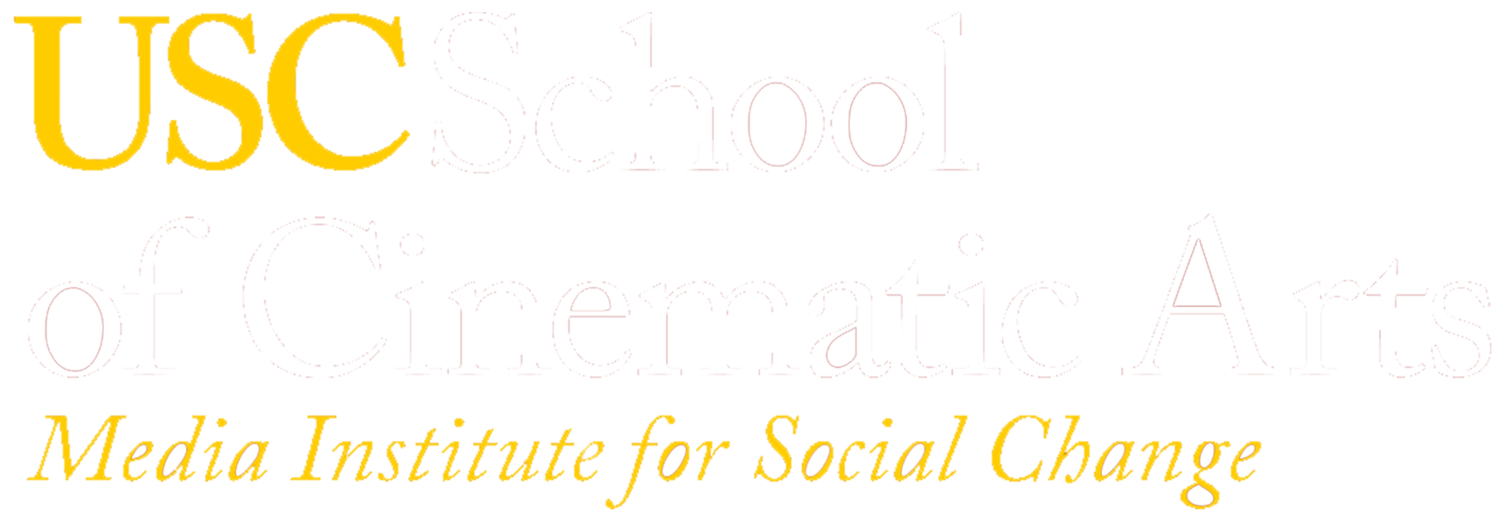The Media Institute for Social Change aims to harness the power and reach of film and TV entertainment for positive social change.
By Suzanne Wu, SCA News
As part of its commitment to cultivating engaged, informed citizens, USC has announced the launch of a new Media Institute for Social Change, a nonprofit organization housed at the USC School of Cinematic Arts (SCA) that focuses on how to harness the power and reach of film and television entertainment for positive social change.
Led by Michael Taylor, the school’s chair of Film and Television Production, the institute will provide an important first step in the social change education for top film school students poised to write, direct and produce the mainstream films and independent works of entertainment that will affect attitudes and public policy for decades to come.
While many disciplines – including business, law and journalism – long have made ethics a core part of their curricula, the institute will help to develop a curriculum involving social change for storytellers, particularly those who will be armed with the reach of film, television and new media.
“It is a great pleasure to provide for our students the opportunity to combine the filmmaking expertise they have learned with a conversation about content and the specific issues that arise in combining entertainment and advocacy,” Taylor said. “That’s what the Media Institute for Social Change will set out to do – help students understand that they [can] reach huge audiences and then help them think about how best to infuse their work with the issues they care about.”
In addition to the “Making Media for Social Change” course at the SCA, the institute will offer scholarships to student filmmakers who are creating projects that integrate entertainment, storytelling and messages of positive social change. Co-taught by Taylor and Emmy Award-winning director Jeremy Kagan, professor at the SCA, the course provides an opportunity for film students to deeply consider rhetorical and ethical challenges in narrative film and television, including how to tell stories that impact the global culture, a sustainable future and the role of truth in persuasion.
The Media Institute for Social Change also will serve as a research hub for media scholars at USC and around the world who are seeking to quantify and to provide rigorous analysis of the correlations between media depictions and shifts in public opinion and policy. Does the so-called Will & Grace effect actually track with changing attitudes toward gay marriage in the United States? How have depictions of race in movies driven the national conversation? What elements of successful narratives actually move people to action in personal responsibility or civic engagement?
“The Media Institute for Social Change is rigorously nonpartisan. We do not have a political agenda; we are not taking a position on issues,” said Taylor, a former motion picture executive at United Artists Corp. and an acclaimed producer of such films as Phenomenon, Instinct and Bottle Rocket. “We are about integrating social issues into stories. As filmmakers, the work we do has a large impact on the culture, and we have a responsibility to use that impact in a positive way.”
Drawing on the experiences of the Hollywood, Health and Society program at the USC Annenberg School for Communication and Journalism, for which Taylor serves as a board member, the Media Institute for Social Change also will help connect industry professionals to faculty experts at USC who can provide fact-driven scholarship and guidance on such issues as human rights, environmental justice, medical ethics and public health, law and politics, immigration and religion, among others.





